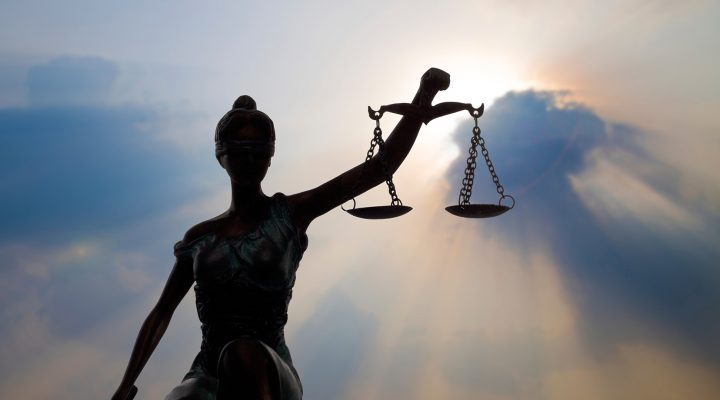I have spent much time processing the outcome of the presidential election. The results left me downcast and perplexed. Not because the outcome was opposite of the way I voted, but because of the swiftness and definitiveness with which the outcome was decided.
To put it bluntly, Democrats got their ass kicked in what appears to be a full-fledged referendum on Democratic Party politics. This election was a clear and resounding rejection of liberal and progressive policy agendas, confirming that perceptions of the U.S. economy and immigration were more influential to voters than abortion and the freedoms of a liberal democracy.

Darrell Hamilton II
Moreover, this election put to bed any notion that the country regarded the election of a 34-count felon to be a moral issue or that his role in inciting an insurrection would be a political death knell. Even sounding the alarm of Project 2025 and the perils of Christian nationalism were not enough to elevate the nation’s first woman to the White House.
I expect for the rest of my life I will be processing the outcome of this election in one form or another. I am sure one day I will even have to explain to my daughter when and where I was when democracy was felled. But for now, as she lays asleep next to me, I am awake trying to make meaning and make sense of the tensions and contradictions of a just God.
Like Job, I am sitting on the ash heap. My complaint is bitter, and I am calling on God to act justly. And I am also asking what justice is when the wicked prosper and the perpetrators of harm are not charged by God with wrongdoing.
“I expect for the rest of my life I will be processing the outcome of this election in one form or another.”
Several weeks ago, I was encouraged to read American philosopher John D. Caputo’s book Hermeneutics: Facts and Interpretation in the Age of Information. In it, Caputo tells a story of French philosopher Jacque Derrida during a panel discussion on justice at Cordozo Law School in New York City. Caputo quotes Derrida telling the panel justice does not exist. Justice is not something “constructable” or concrete, nor does justice exist as a Supreme Being or a pure form. Rather justice is a hermeneutic that colors the way we see and “haunts” the way we live. And perhaps the ways we conceive of justice need to be better considered.
Caputo quotes Derrida saying, “Justice is always coming; justice is always promised, but it never arrives, as such.”
In other words, justice does not come as an ideal place and time, but justice happens as a thing that is felt, hoped and “always being called for.” Justice comes in the aspiration and appeal to justice in light of injustice. Beckoning, disturbing, compelling and haunting us to make laws, institutions and communities more just, although justice never arrives as such— meaning fully, perfectly, concretely in the laws, institutions and communities we aspire to make just.
Perhaps justice is what we ought to think of when considering and anticipating the Kingdom of Heaven, although not fully realized in the earth, that already is present and known in the earth. Therefore, I believe Derrida’s point aligns well when considering the story of Job because, for Job, justice does not exist. Justice does not exist in his life or in the lives of others, and not unlike us today, Job is looking toward a day when Shaddai, God Almighty, the Supreme Judge of the cosmos, finally will bring judgment, justice and rightness to the world.
Job is looking toward a definitive moment, a concrete act, a pure form when the God who is sovereign over all the earth will make all things right. But Job, nonetheless, is wrestling with the tension and contradiction of what justice ought to be.
But what Job illuminates is that justice exists in the integrity we exhibit in the troughs of unjust circumstances. Justice exists when we decide not to curse God and die. Moreover, justice exists in sitting on the ash heap of our grief, heartache, disappointment, despair, frustration, anger, sadness and failure, and not giving up nor succumbing to the temptation and peer pressure to leave our righteousness behind.
Justice exists in “rising to the challenge of establishing and maintaining” God’s justice, all the while existing in unjust and imperfect systems and working for justice to come.
N.T. Wright and Michael Bird deftly and prophetically puts it this way in their book Jesus and the Powers: Christian Political Witness in an Age of Totalitarian Terror and Dysfunctional Democracies:
Wise humans can and must rise to the challenge of establishing and maintaining God’s intention for a well-functioning human society (recognizing), of course, that our present efforts will fall short of the ideal, but we cannot for that reason shirk the attempt. Kings can err. So can mobs. So, too, can democratically elected majorities. That is why wise critique — a central part of the church’s vocation ‚ remains vital.
Simply, what Wright, Bird and Job suggest is that as long as people continue calling for justice, believing in justice, hoping in justice, there is justice. As long as people continue living their ways reflecting justice, there is justice. And I like how Martin Luther King Jr. puts it:
“I have decided, even while sitting on the ash heap, that I am going to live right despite so much that is wrong with the world.”
If you’re doing right only to avoid going to a place theologians have called hell then you’re not doing right. If you’re doing right only to go to a place theologians have called heaven, then you’re not doing right. If you’re doing right only to avoid pain and to feel pleasure, then you’re not doing right. Ultimately, you must do right because it’s right to do right.
Therefore, regardless of the manner justice does or does not exist, the church, nonetheless, is called to reflect that justice does exist. Moreover, I, regardless of how others may live, am called to reflect that justice does exist.
Regardless of the ways others may live, worship and vote, I am haunted by the command to do right. I am haunted by the command to love the Lord, my God, with all my heart, soul, mind and strength and to love my neighbor as myself. I am haunted by a command to do justice, love mercy and walk humbly with God. And I am haunted by a promise that those who wait on the Lord shall renew their strength, and although weeping may endure for a night, joy comes in the morning.
Therefore, I have decided, even while sitting on the ash heap, that I am going to live right despite so much that is wrong with the world. I have decided not to curse God and die, but to live so God can use me to usher in justice. Justice for Palestinians. Justice for immigrants. Justice for the poor. Justice for my daughter.
I am called, and the church is called, to proclaim the good news that justice is always coming, that the Kingdom of God has come near, and I am convinced justice always will come as long as there remain people willing to hear and answer justice’s call.
Darrell Hamilton II serves as administrative pastor at First Baptist Church of Jamaica Plain, Mass., and as Protestant chaplain at Babson College in Wellesley, Mass. He is an ordained Baptist minister and graduate of Wake Forest School of Divinity. His ministry and leadership are focused on advancing diversity, inclusion and advocacy for the vulnerable and marginalized to inspire greater justice and love for all people.
Related articles:
Are we still of any use? | Opinion by Bill Leonard
The slippery slope of unchallenged lies | Opinion by Mark Wingfield
Creating a sanctuary in times of fear | Opinion by Patrick Wilson


